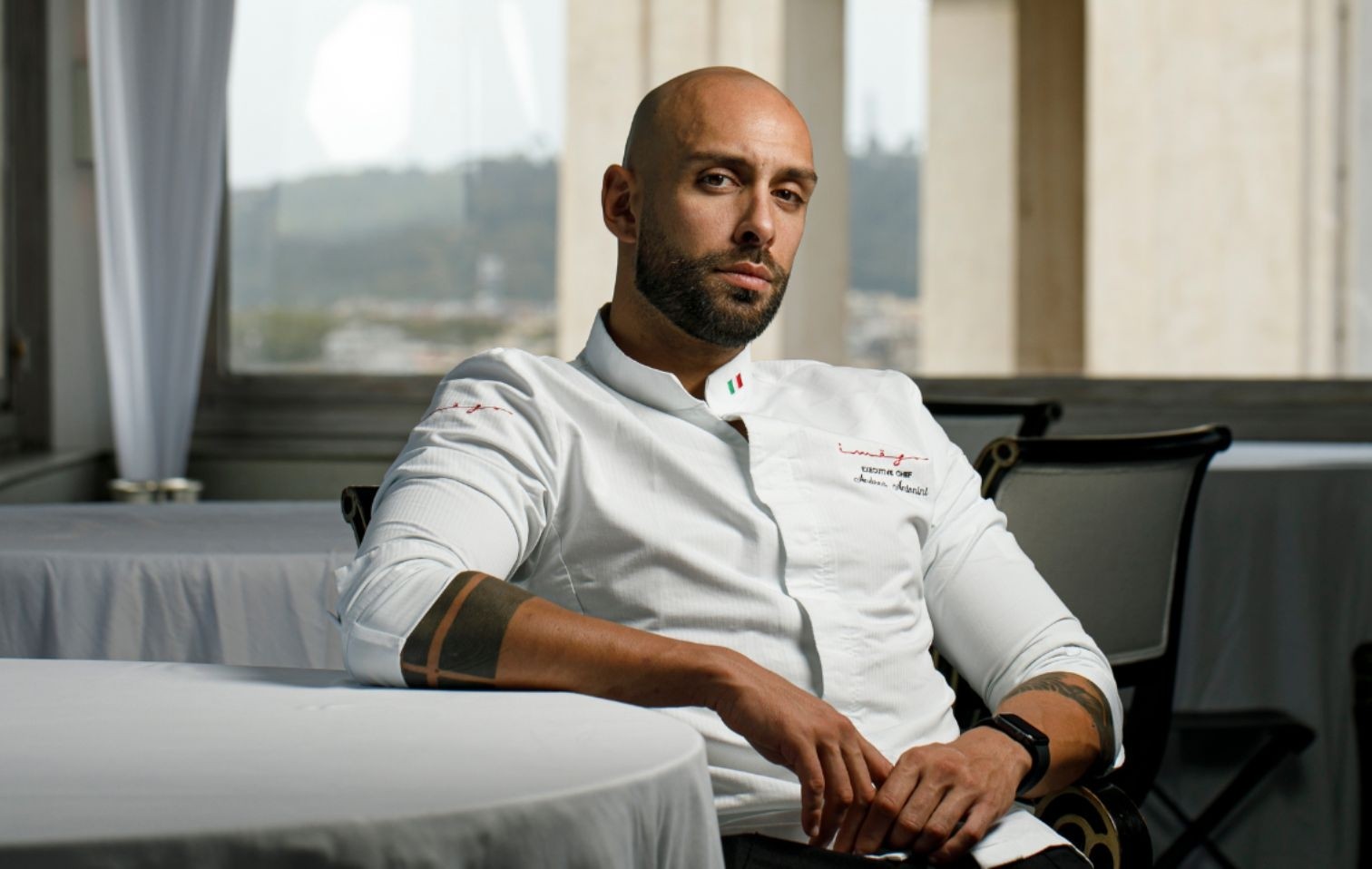When service and kitchen are one: beyond the unquestionable beauty of the place, at Imàgo there is palpable harmony and uncommon tunefulness, so you find yourself living in an atmosphere of very elegant informality, quite rare in an upscale setting. The rest is done by Andrea Antonini's increasingly centered menu.
Photo by Alberto Blasetti
The story of the Hotel Hassler, an icon in Rome
Telling the story of Rome in a few lines is an impossible task; observing it from above, perhaps from the windows of a restaurant of rare elegance, on the top floor of a hotel of luxury and long tradition overlooking the Spanish Steps of Trinità dei Monti, above the Piazza di Spagna, is instead a privilege accessible to Imàgo's guests.
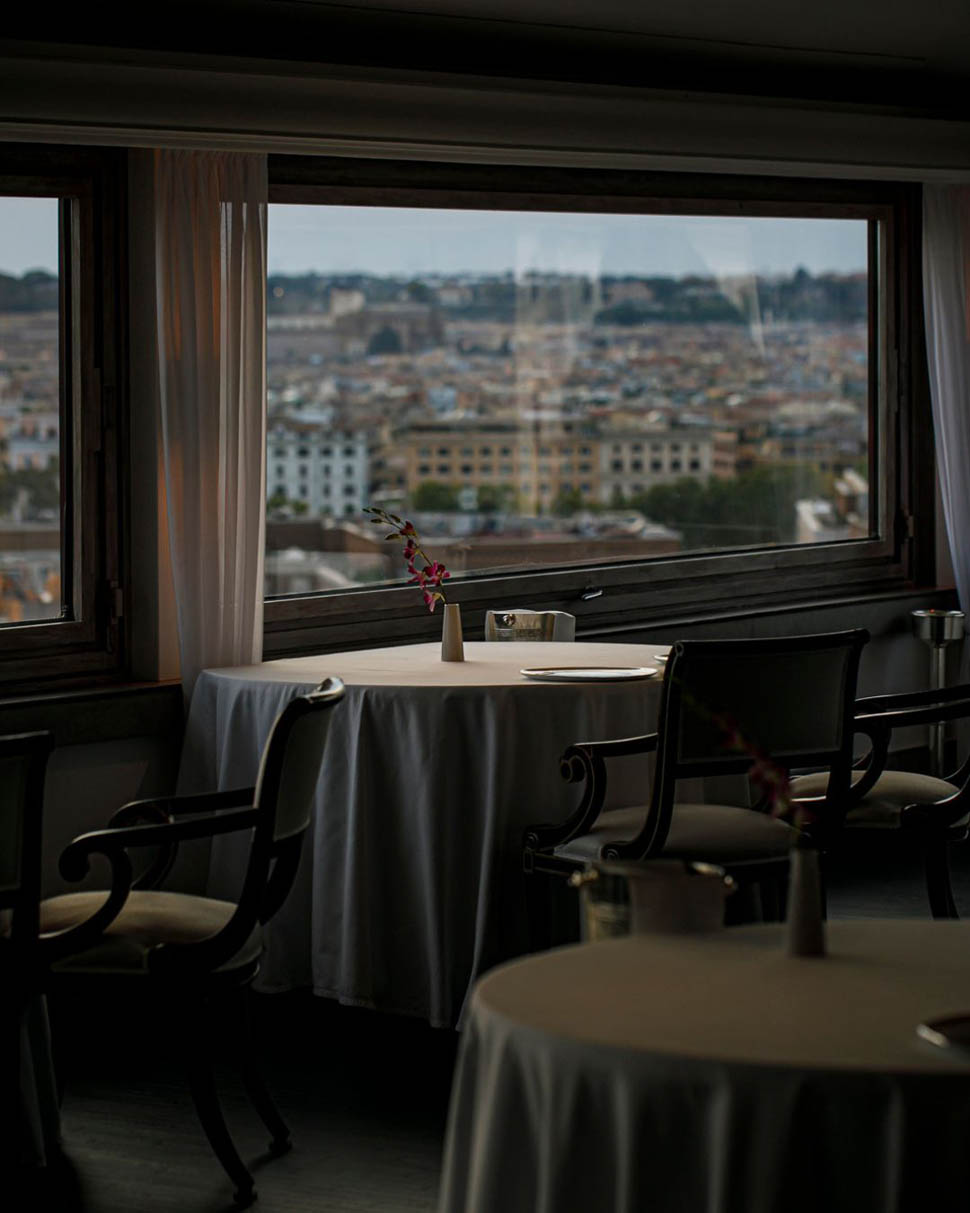
Before delving into the description of this gastronomic Capitoline gem, however, it is worth contextualizing its location and talking about the Hassler, a wonderful hotel represented today by the sixth generation of a dynasty of Swiss hoteliers, Roberto Wirth Jr and Veruschka Wirth. It all starts in the last thirty years of the 19th century, when in 1870 Franz-Josef Bucher, a true pioneer of the European hotel industry, bought Trittalp, a particularly remote Swiss mountain area, having several hotels built there, the Hammetschwand chairlift that still holds the record as the highest on the continent, and the Burgenstock railway.
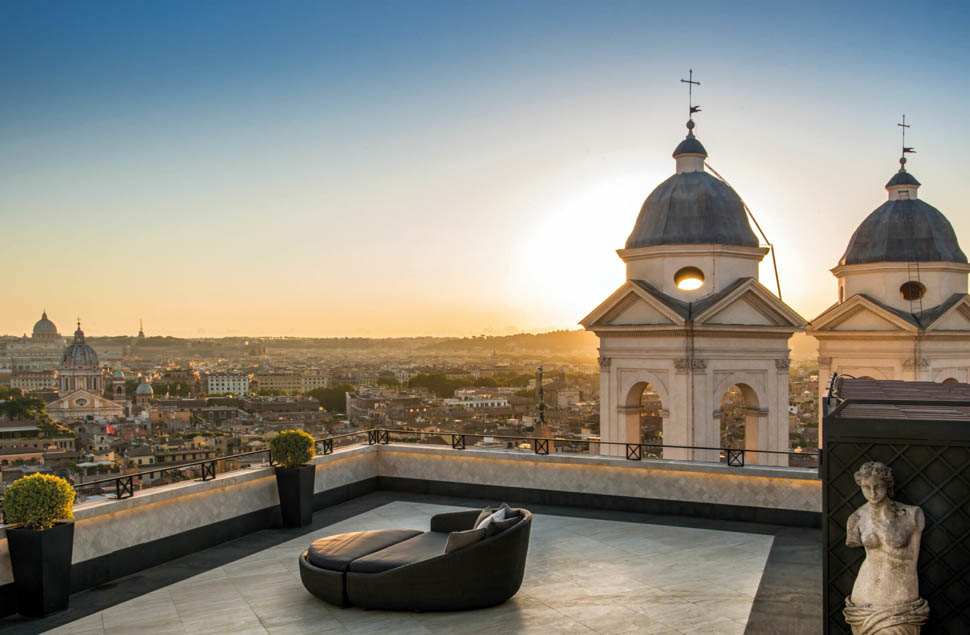
Twenty years later, Bucher entrusted his son-in-law Heinrich Wirth (grandfather of Roberto E. Wirth) with the task of going to Rome to manage the Hotel Minerva and then to take over the management of the Hotel Quirinale, which became one of the most prestigious in the capital. In 1921 it was Heinrich's son, Oscar, who took over the management of Herr Hassler's eponymous hotel as a partner, later becoming its sole owner. The hotel was demolished and rebuilt almost entirely in 1939; it was later requisitioned by the U.S. Air Force, which made it its headquarters during World War II.

The reopening of the renovated Hassler to the public took place in 1947: three years later Roberto E. Wirth, eldest son of Oscar and his wife Carmen. A legendary and charismatic figure in hospitality, he passed away in 2022 and left to his sons ownership and management of one of Rome's most charming hotels, with 87 rooms and suites.
Imàgo restaurant and the philosophy of Andrea Antonini
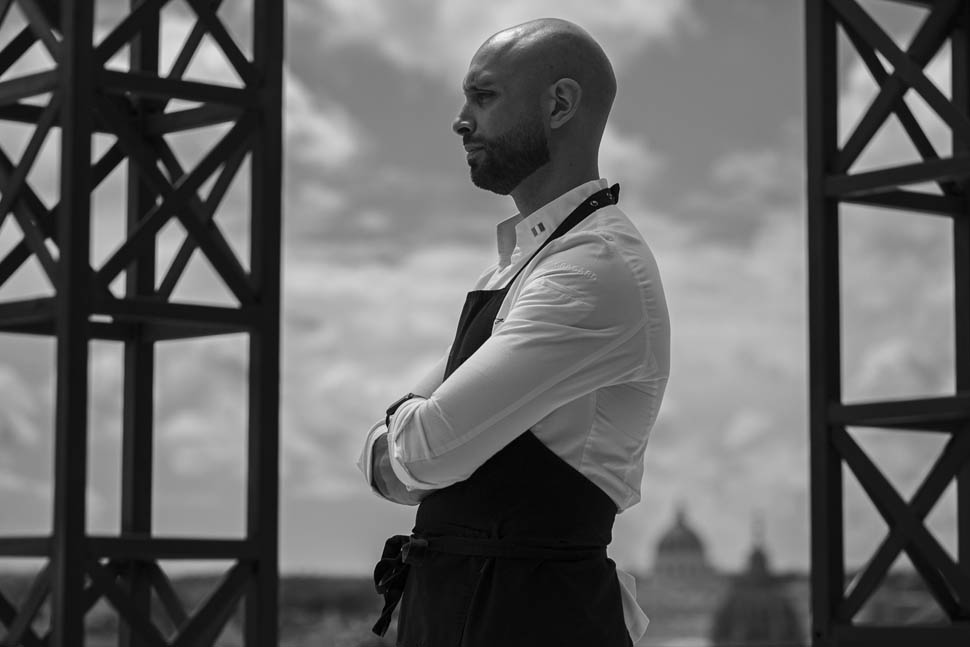
With Imàgo, the Wirth family's sensitivity to beauty has also translated into a similar disposition toward fine dining. A Michelin star, the large dining room with an extraordinary view of Rome thanks to large windows, the restaurant is led by Andrea Antonini, a Roman born in 1991 who replaced Franscesco Apreda in 2019, with restaurant manager Marco Amato. He exudes energy and vitality, Antonini, who, evoking his arrival here, remembers it as a turbulent time: “I was 27 years old. Today I say it was the toughest six months of my life, and if I went back I would not do it again. For one simple reason: it worked out well for me and I'm here talking about it, but if it hadn't, I would be doing a whole different job today. When you're in it, you realize it's a thing of pure hunger, pure instinct, of wanting to get there and prove yourself. So you just go for it.
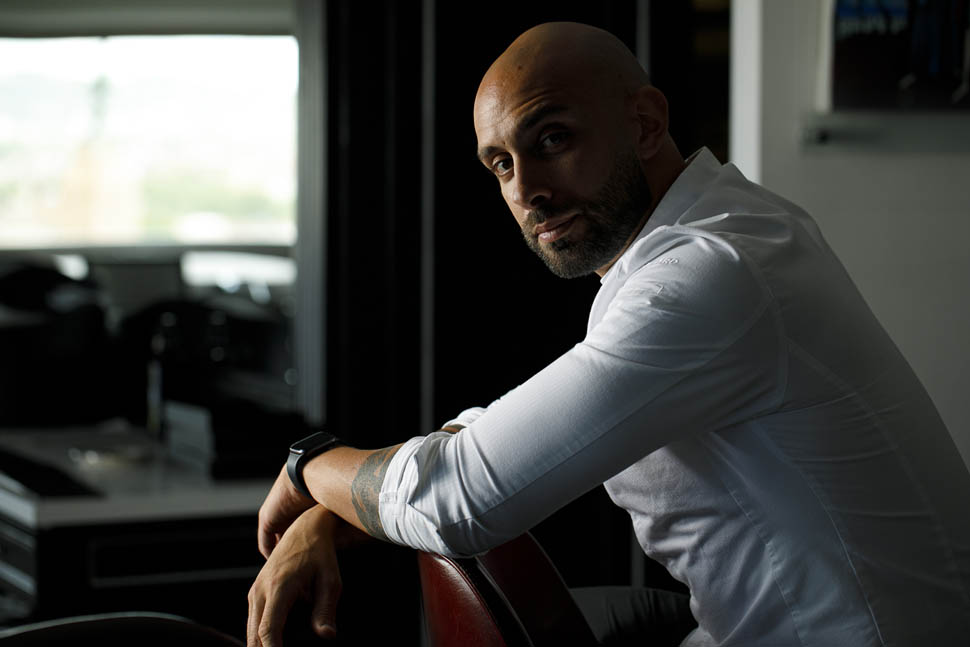
A lot of young guys take on big responsibilities, and that's fine, some replacing someone already great, but what happened to me was having to take responsibility for a position so that I was a kid, going to replace someone who was at the height of his career at that time. Being honest, I was very reckless.” We have no reason to doubt the feelings Andrea described to us, but this cook has a lot of personality (we will see as we describe his dishes) and experience as well, so the idea we got is that the failed option was never really considered.
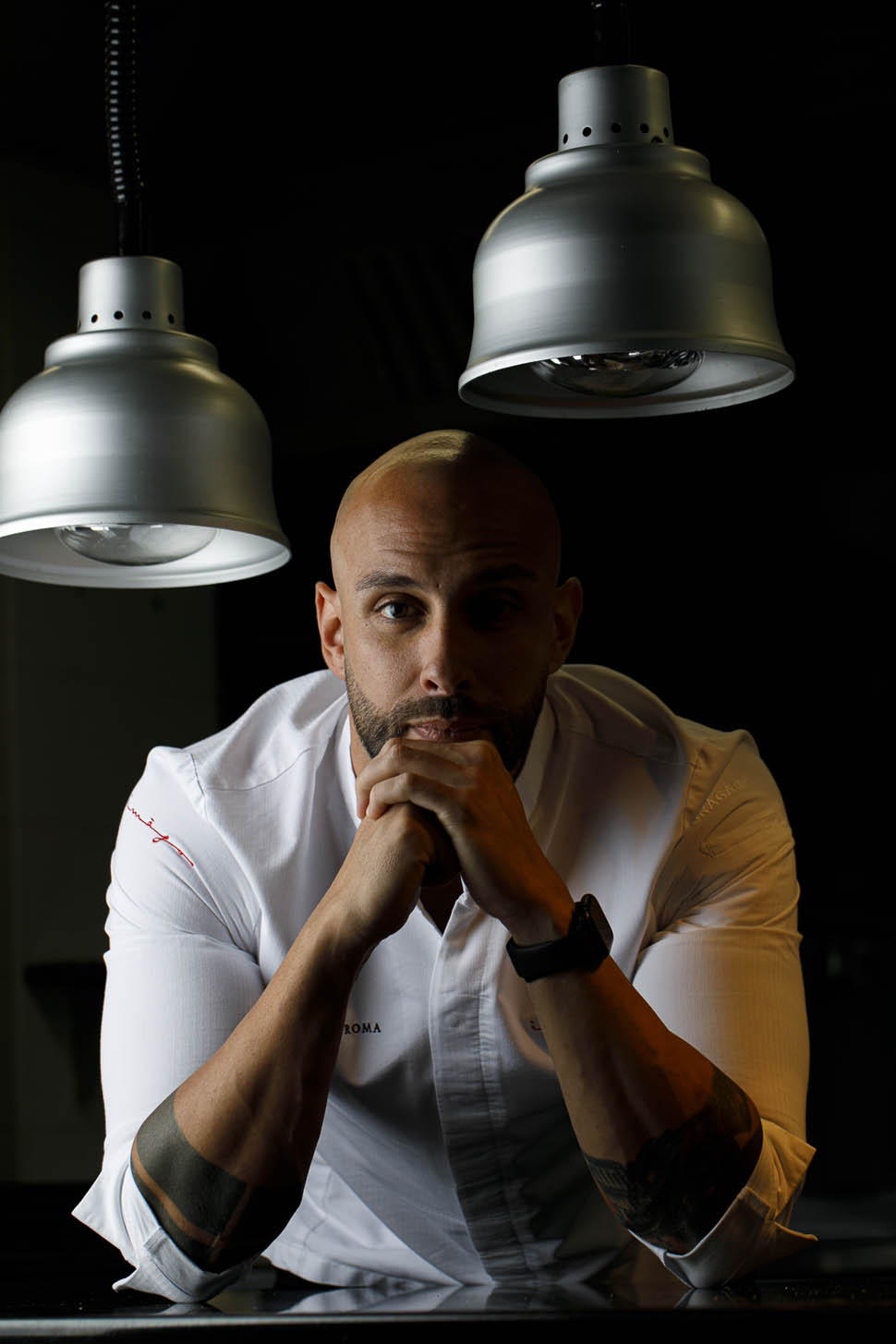
"The thing that scared me the most was the media exposure. There was and it was tough, neither simple nor trivial. I'm happy, though, because I'm in my city, even though I've lived so much outside: I would not exchange this place for any other in Rome." Evidently the Wirths were right on the mark. It must be said that Andrea Antonini, although he joined Imàgo at only twenty-seven years old, brought with him a wealth of rather significant experience. Born in 1991 in Rome, he became a cook out of necessity: “I came from a very humble family, from a working-class neighborhood; I attended the technical agrarian institute and when I was 18 there was a need to work even to help at home. So I started as a dishwasher and cook's helper in a soup kitchen here in town, and I started to like it." Andrea is a go-getter and decided to leave for Australia: “I had the good fortune (actually he jokingly uses another term) to work at a great place that was Tetsuya's in Sydney for a year. Work and discipline got me involved, and I decided that if I was going to be in this business I wanted to do it that way."
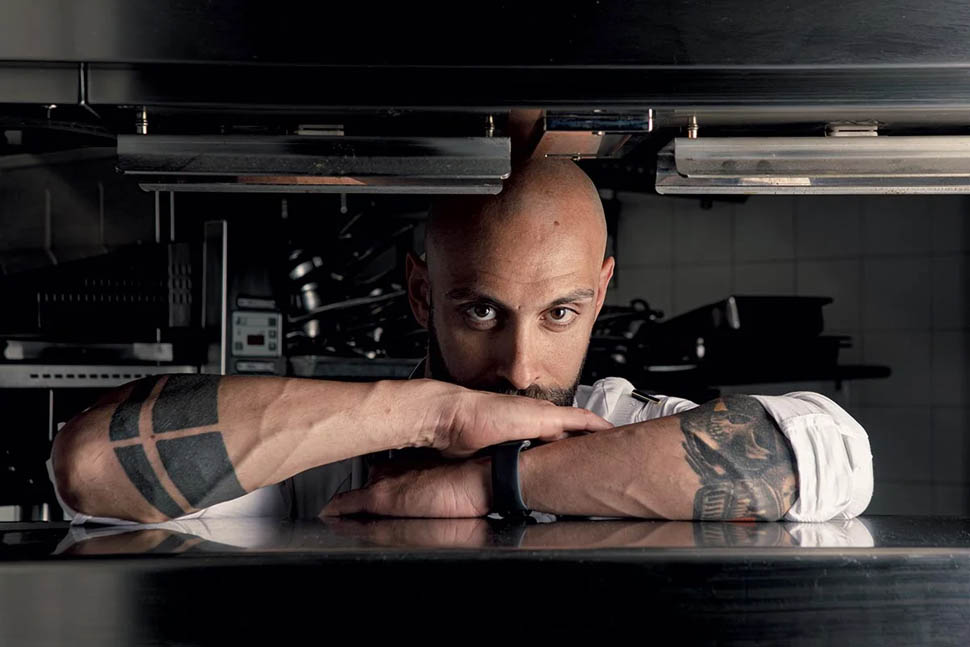
He studies a lot: “I would have liked to do some major cooking academy, maybe ALMA, the problem is that I didn't have the financial possibilities, so I decided to train myself. I bought a lot of books, I have a beautiful collection at home, which I cherish: it's huge, with cooking texts of all kinds, including very particular ones. So I read and attended conferences and in the meantime I was working. I spent four wonderful years in Rome, divided between Judas Dancer and Metamorphosis.” Antonini, however, is inspired by Spain, so he sends his resume to Quique Dacosta: “The first six months I had the huge luck of being in the creativity lab with creative director Juanfra Valiente, then I spent another year and a half in the kitchen.”
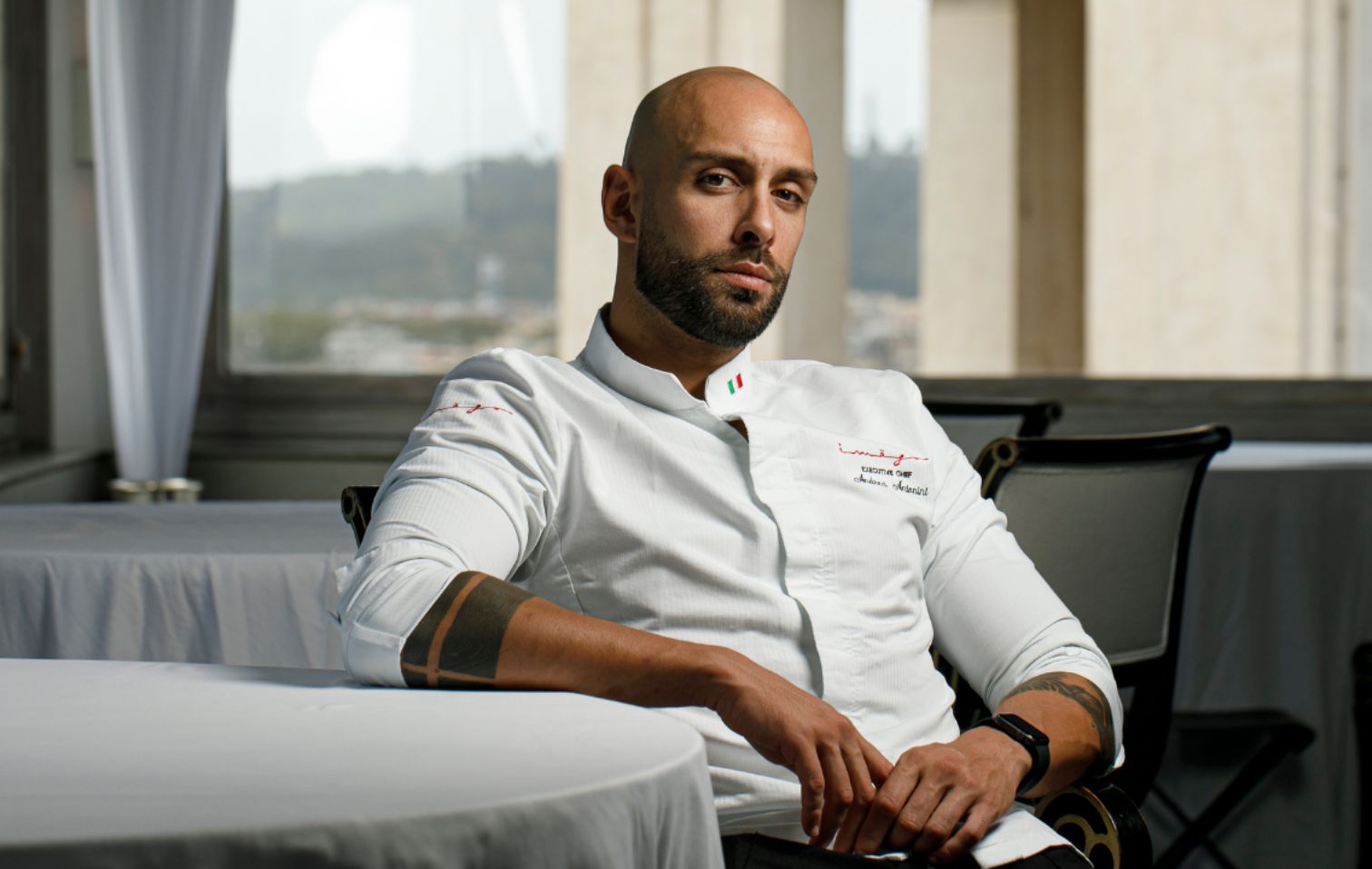
But Andrea's ambition is far from dying out: "I wanted to grow, and Juanfra himself put me in touch with El Celler de Can Roca. That place taught me so much, perhaps one of the best experiences I've ever had. There I had another great stroke of luck (but at this point we're convinced it's not just that, as he claims, ed.) because I won the creativity contest that the Roca people organize every year. All the people who come through the restaurant, from interns to foremen, submit a project and are evaluated by the three of them over the course of the year.” In Spain, Antonini spent just over three years: the idea was to return to Italy. "I wanted to work with a great Italian, I had targeted Alajmo, Bottura or Crippa. What happens is that I go to eat at Piazza Duomo and - for what is my concept of cooking - he bewitched me. The way I saw Crippa I liked everything about him, so in the end I decided to go there ." But the Wirth family's offer from Rome, a year later, he will not be able to pass up.
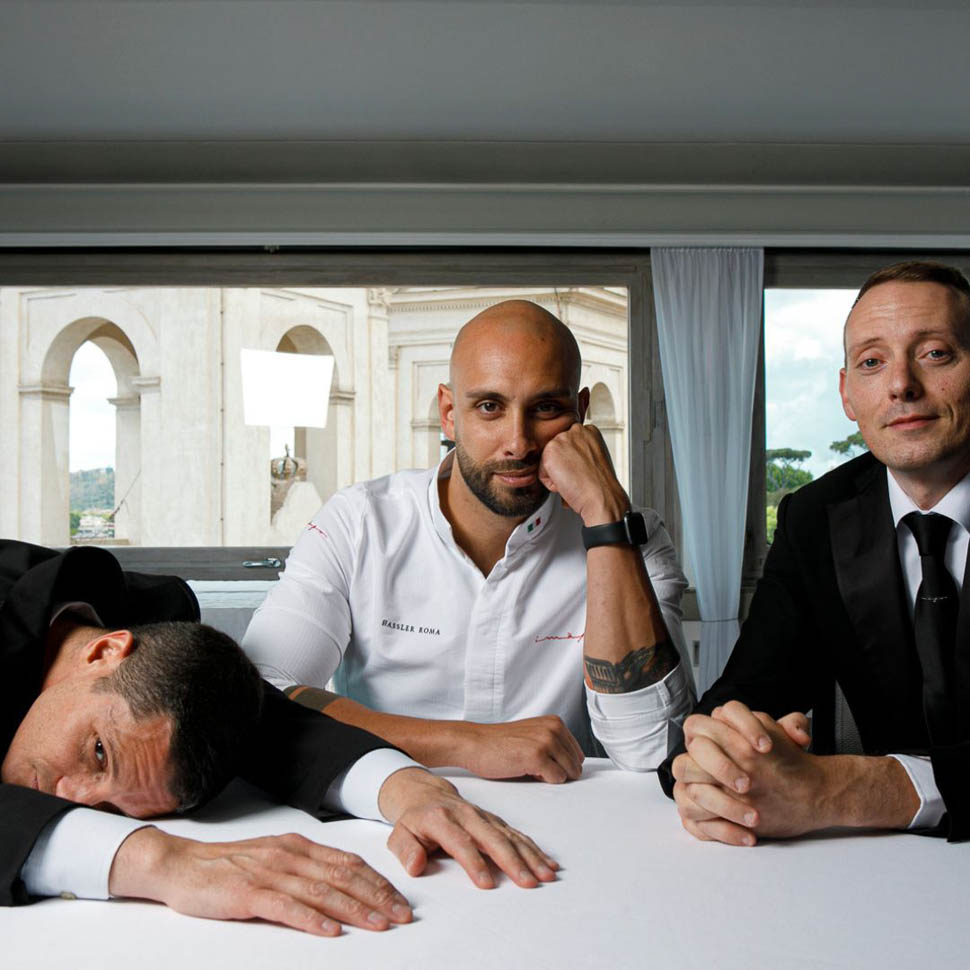
Beyond the unquestionable beauty of the place, there is palpable harmony and uncommon tunefulness in the Imàgo's dining room, so you find yourself living in an atmosphere of very elegant informality, which is quite rare in a luxury setting. In fact, the chef tells us, “I have a fantastic relationship with the service team, and I'm really close with Marco Amato. He opened Imàgo with Apreda, and when the chef left he was dealing with a 27-year-old kid. It was complicated, as a situation to deal with, maybe he got scared too, but in the end I realized that he saw 'something' in me: by staying here he made a bet and in the end that bonded us a lot."
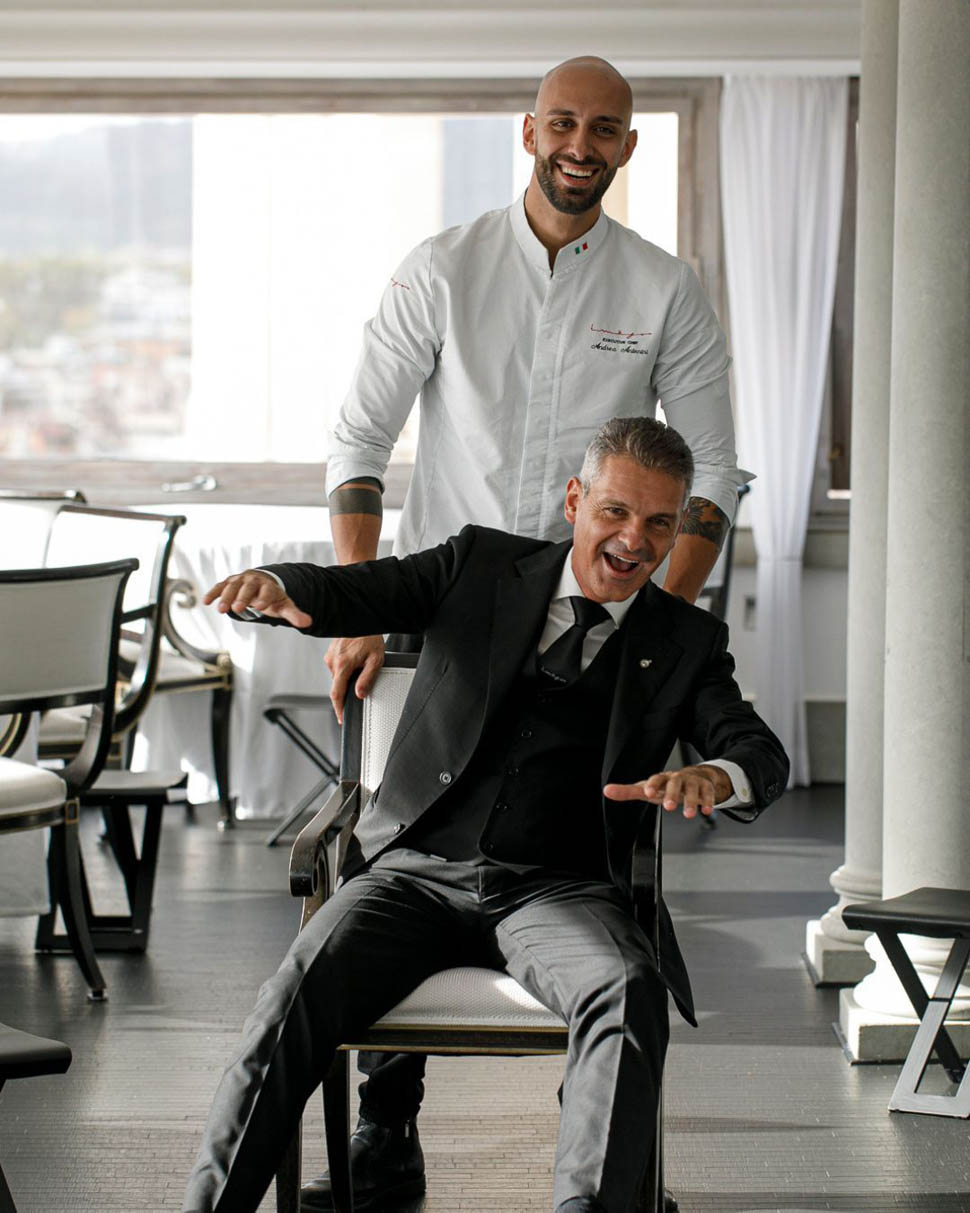
In the kitchen Andrea now feels (and is) solid, and - knowledgeably - he says, "There are things that are starting to tire me a bit, like still being called an ‘enfant prodige.’ I've been here almost six years now, so let's look forward. I'm quiet and I absolutely love this job of mine, I still want to live it as a job: coming in the morning, doing my thing, being with the kids. Today for example we came back and I filleted the fish that was there, I took apart the lambs, I'm happy like that."
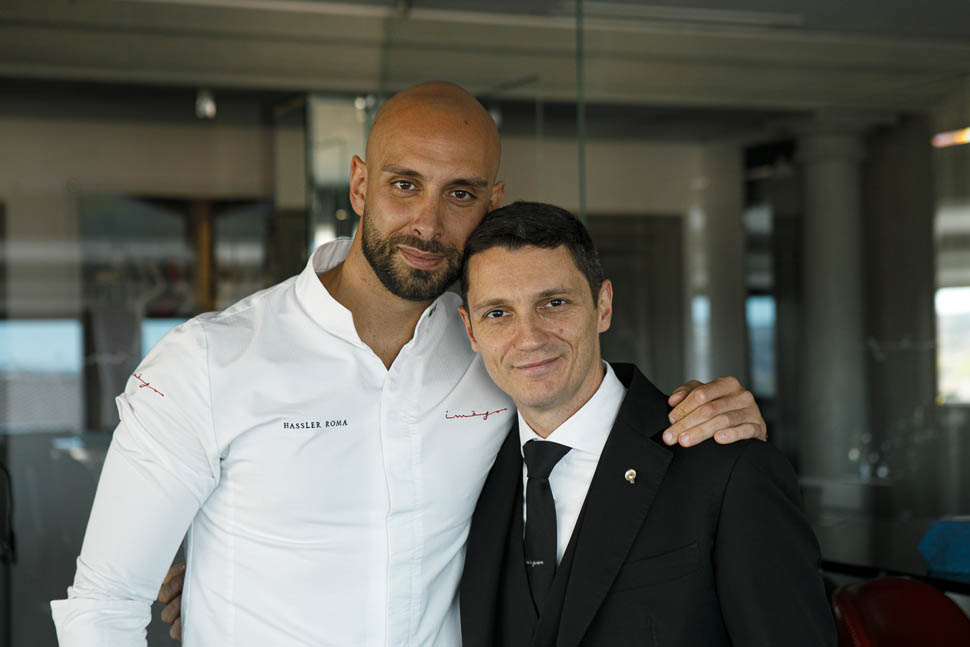
The dishes
And it can be said that this peace of mind translates directly into particularly successful dishes of character and personality. These are those of a menu, Imàgo 11, that never bores and in which there is no lack of important episodes of taste, as well as intervals of great freshness. Starting with Sorrel, wild strawberries, sour cherry vinegar and almonds, which at its base has the plant's cold sauce with a sour taste; fragrant fresh strawberries, roasted almonds and sour cherry balsamic vinegar are added. To close, sorrel leaves topped with almond oil and frozen shots of the same.
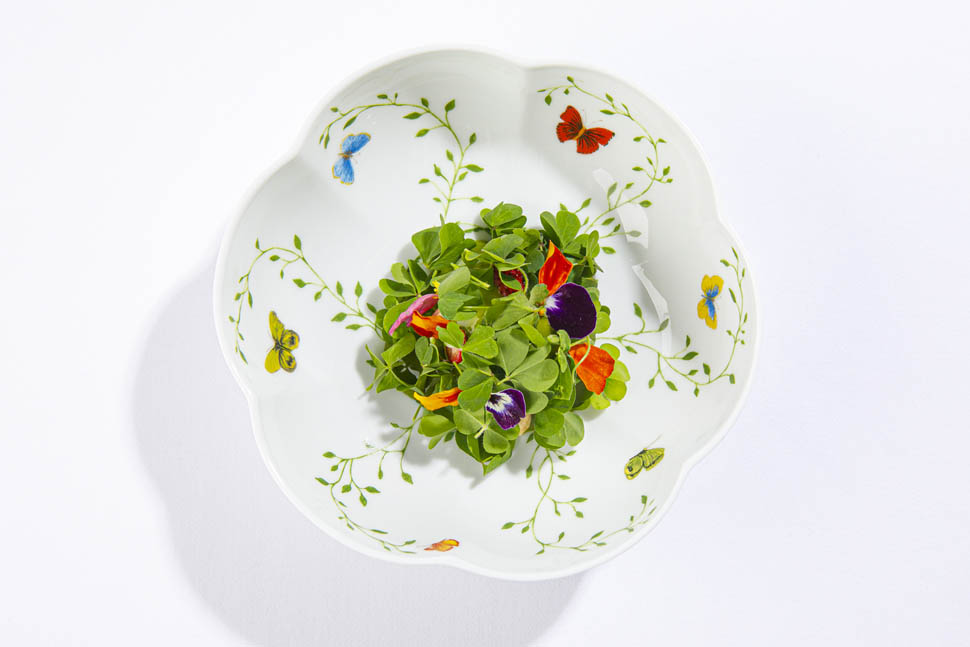
Remarkable Peas and Caviar with a 'cloud' of the roasted legumes, made from the whipped jelly of the pods, with fresh peas seasoned with spring onion oil and lemon: to complete the work, Oscietra caviar. More extreme freshness with the Sea Cucumber in Green Sauce: imagining the sea cucumber as ribs, sautéed in small pieces in a pan and seasoned with citrus, chili and herbs and then topped with a mint pil pil, made from the skins of the sea cucumber itself.
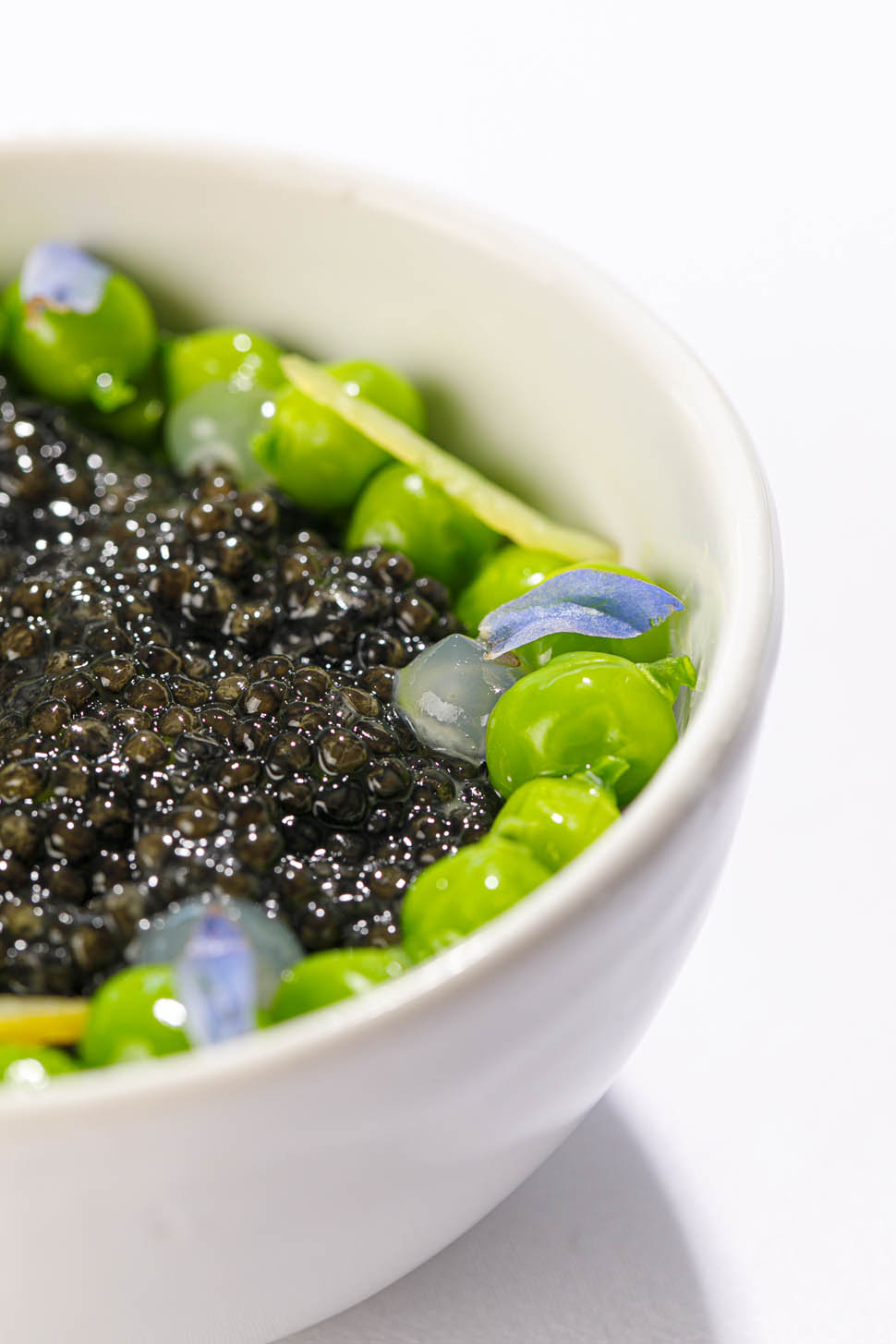
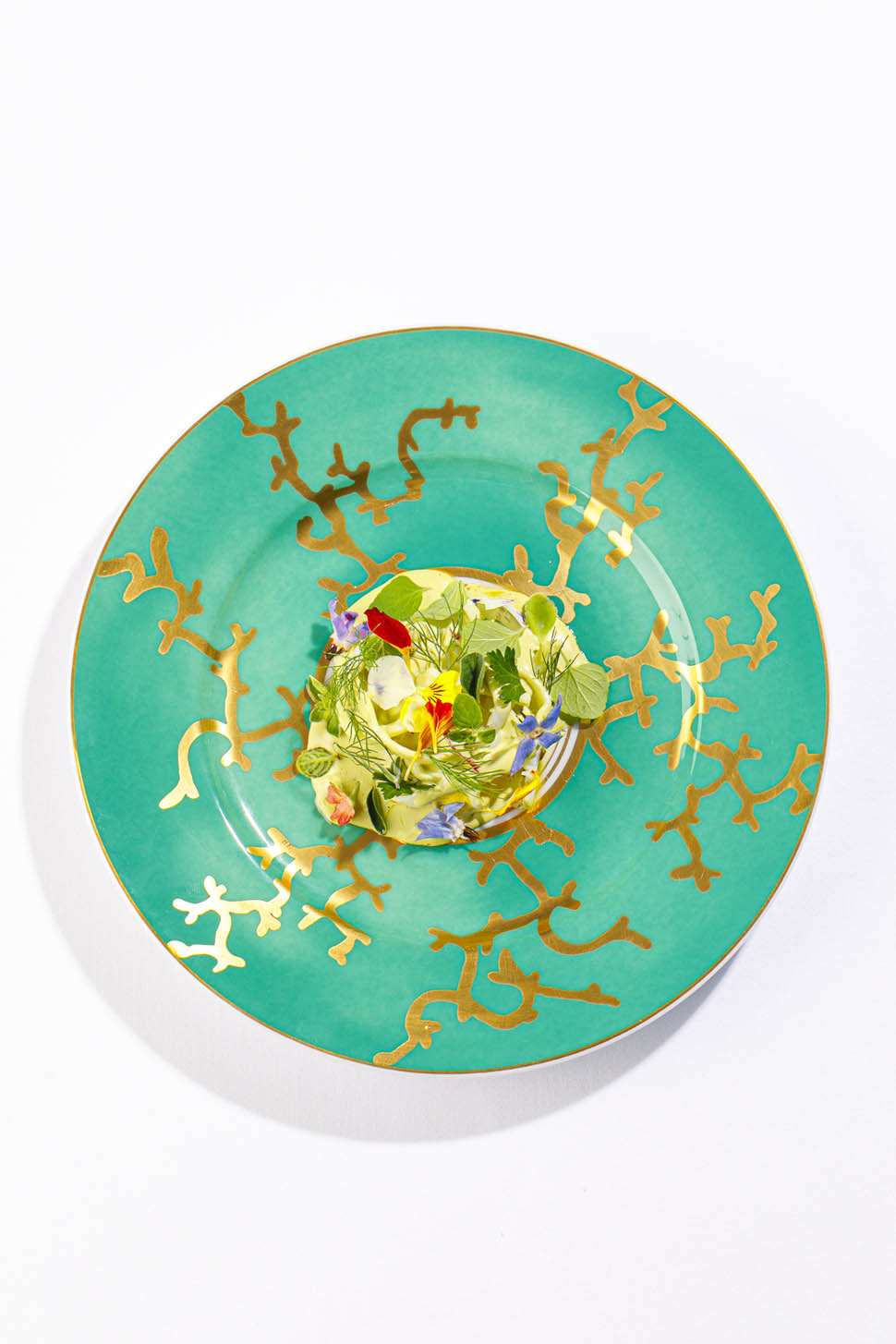
Of fragrant goodness Lamb, milk and hay: the meat, of Lucanian origin, is matured for 3 weeks and seasoned with its flavored fat, hay vinegar and crispy skin; complementing it all is a reduction of sheep's milk in which the hay is infused.
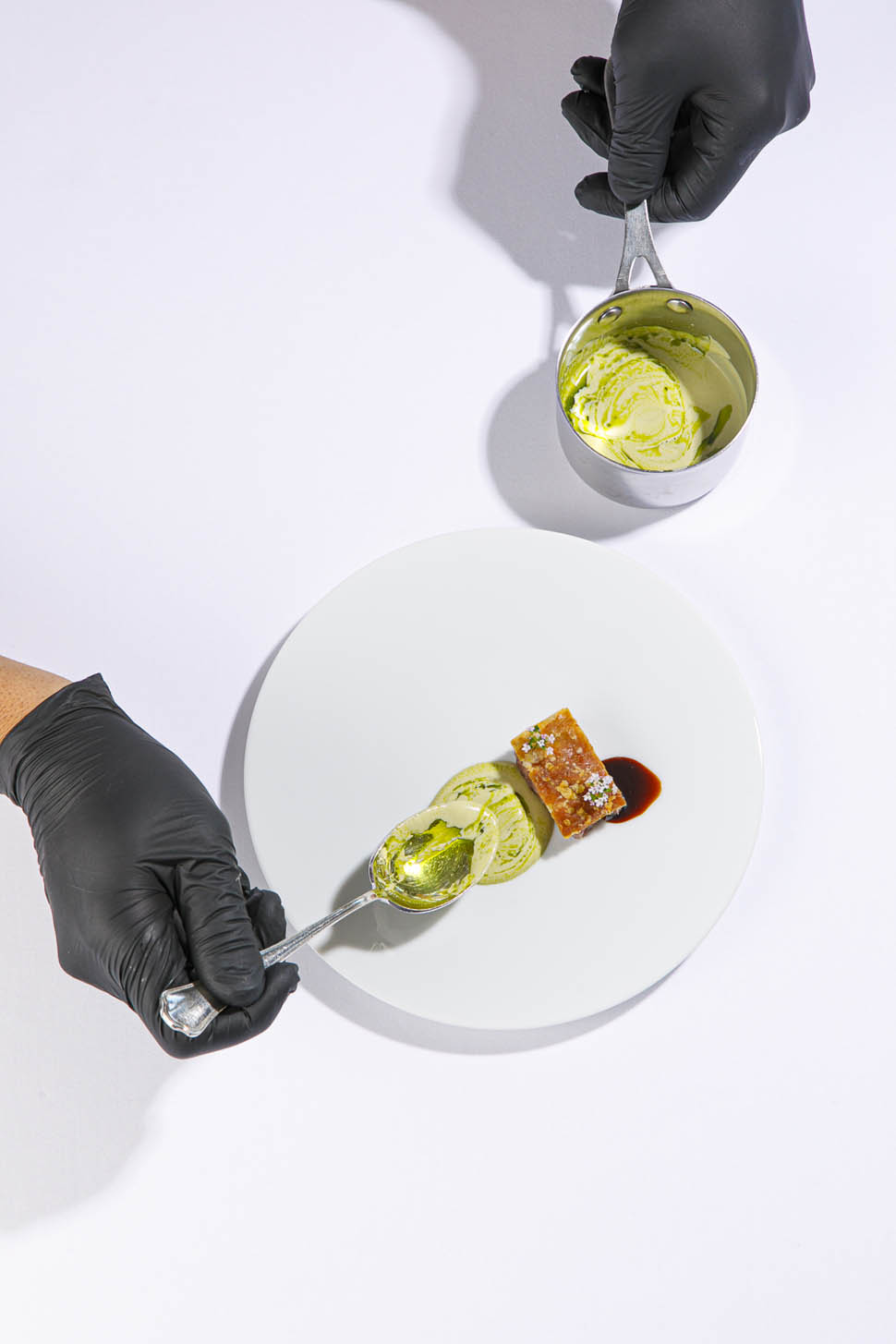
A masterpiece of technique and taste is the bread with fermented apple water, salted butter, and bread 'honey,' the latter a reduction of stale bread, rehydrated and treated with an enzymatic process, amylase, which breaks down the starches and reduces the bread to a dense and naturally sweet substance (no added sugars), with a caramelized note enriched by a star anise aroma.
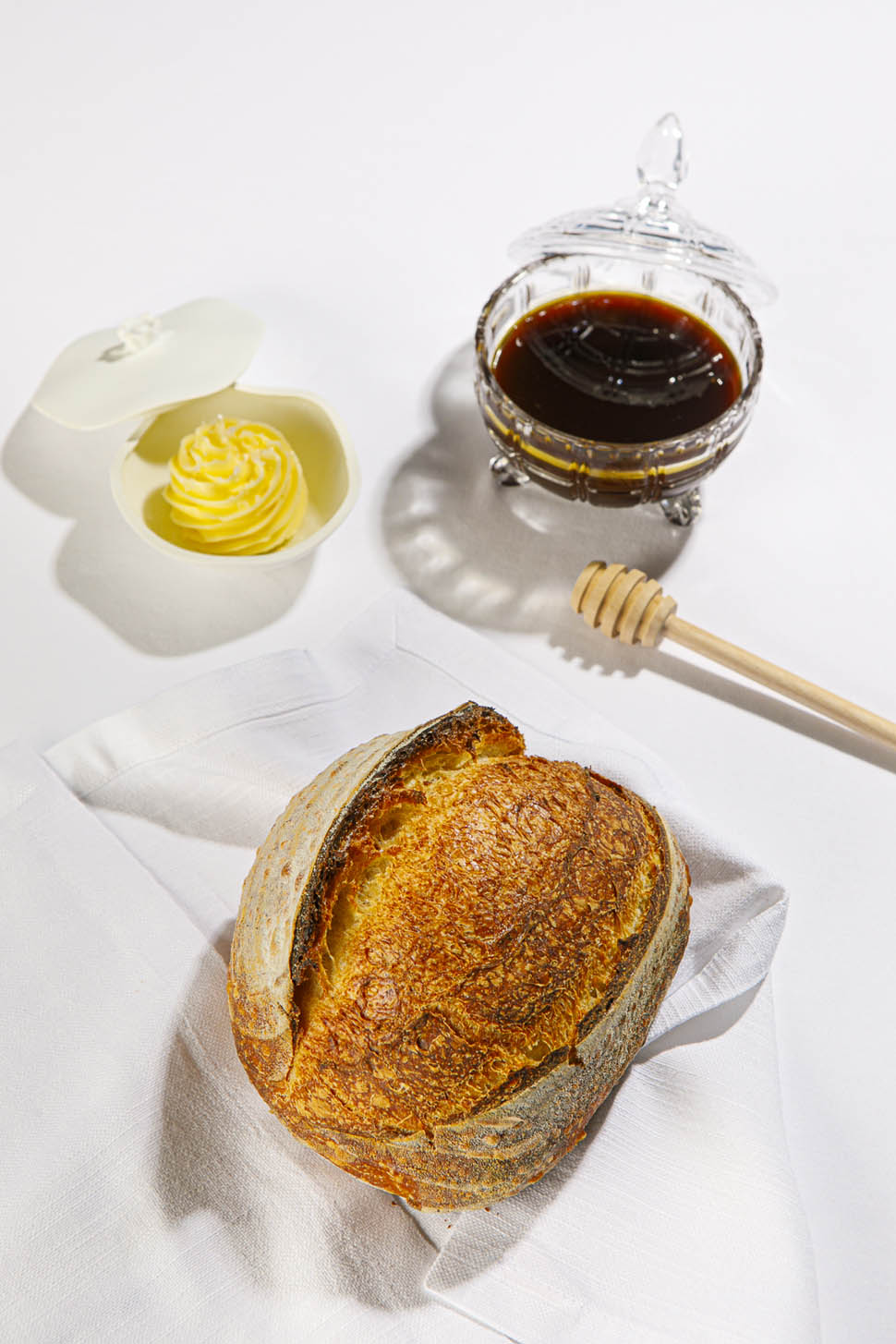
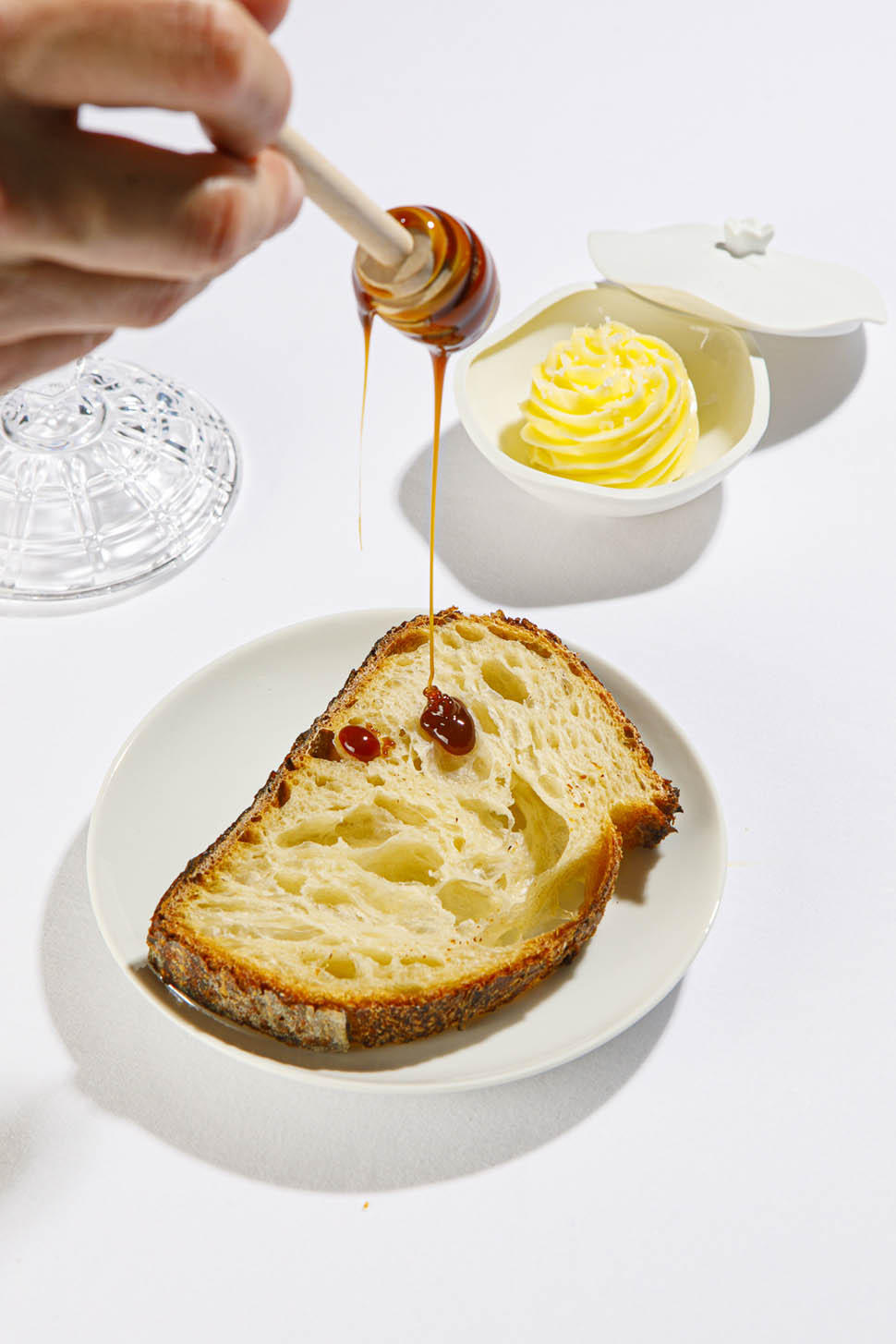
The raviolo, yeast, potato, and onion is tasty with egg pasta filled with cream of potatoes; the base is a reduction of potato, pickle white onions, and red vinegar molasses; to close, a frothy sauce of sourdough and fresh spring onion.
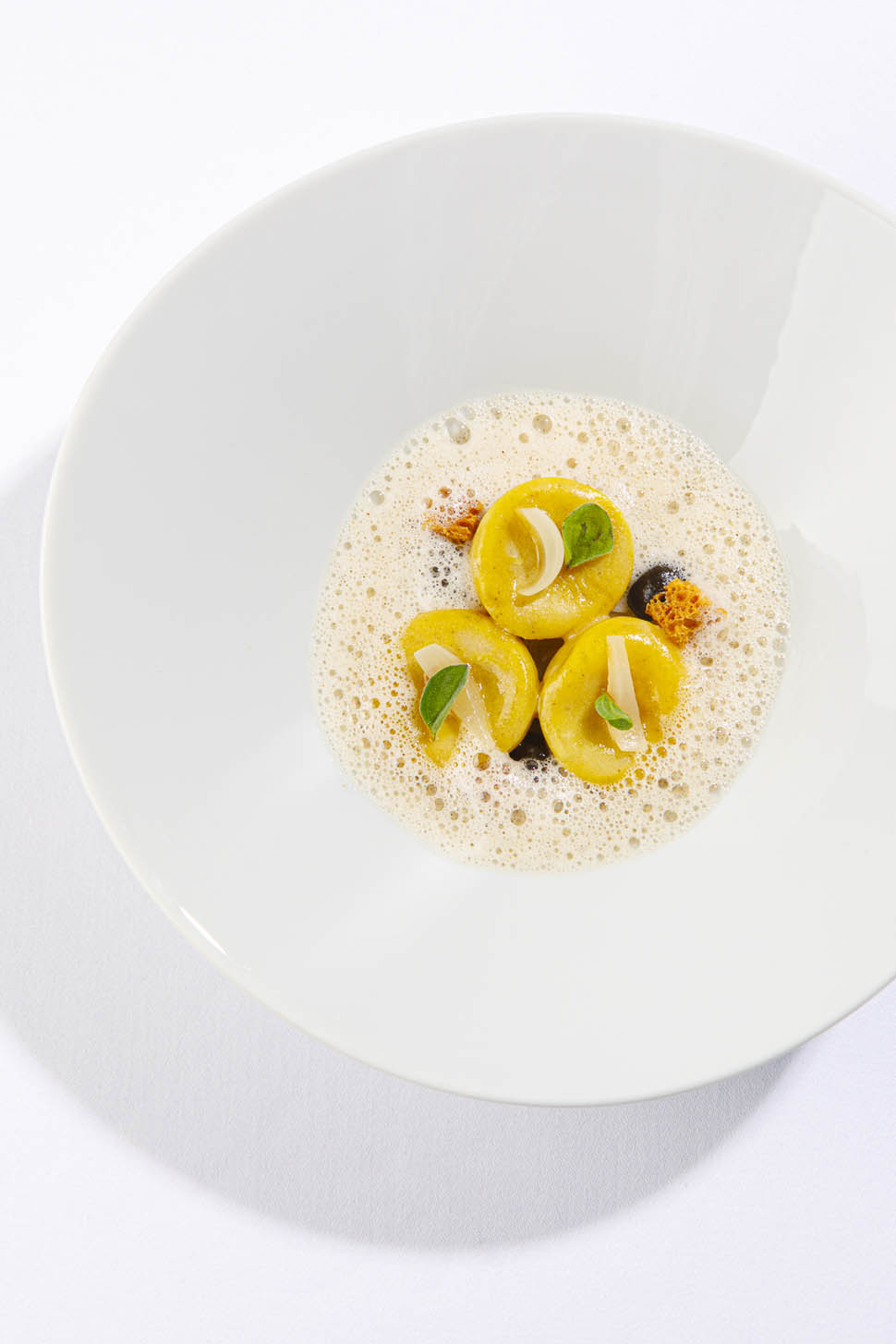
Of great goodness (and a depressing name, given the complexity) Pasta, Butter and Parmigiano: the ditalini are cooked in chicken broth and crusts of the same cheese, whipped with smoked butter and enriched with 120-month Parmigiano; the taste is further enhanced by caressing flower pollen and cedar albedo with its very pleasant fresh bitter note; finally, a fragrant julienne of fresh sage.
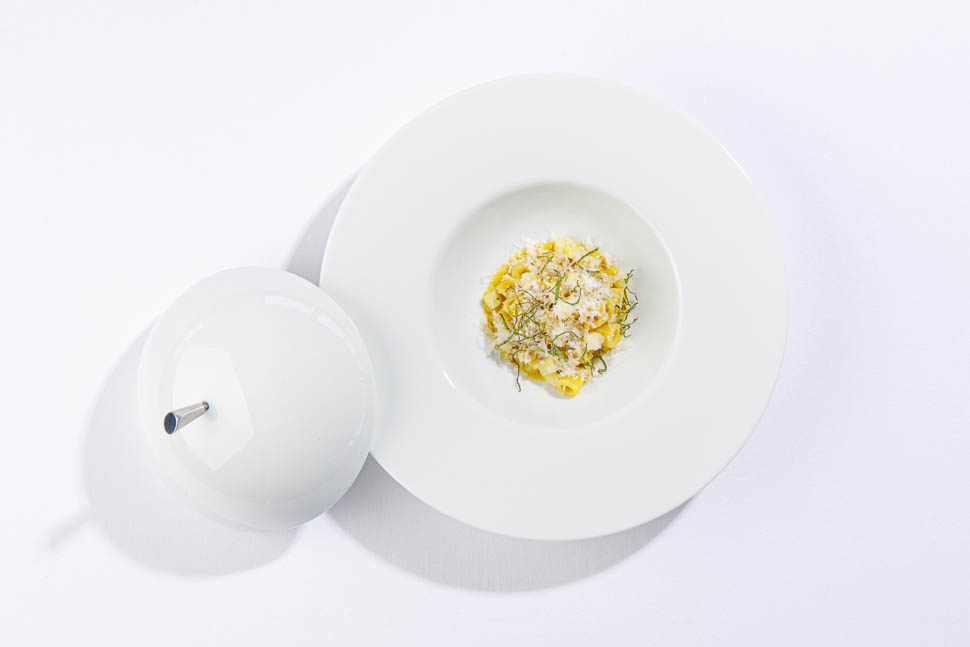
Tastefully perfect invention the "Branzino in porchetta": filets of the fish are breaded with a mixture of dried herbs to prevent water release during cooking, then glued together by protein activation. This creates a sausage; flavored pork fat and puffed rind powder to resemble porchetta, dots of lemon-rosemary mayonnaise to refresh. To finish, a wonderful concentrated bottom of sea bass and roasted pork ribs; more freshness with fennel flowers marinated in vinegar.
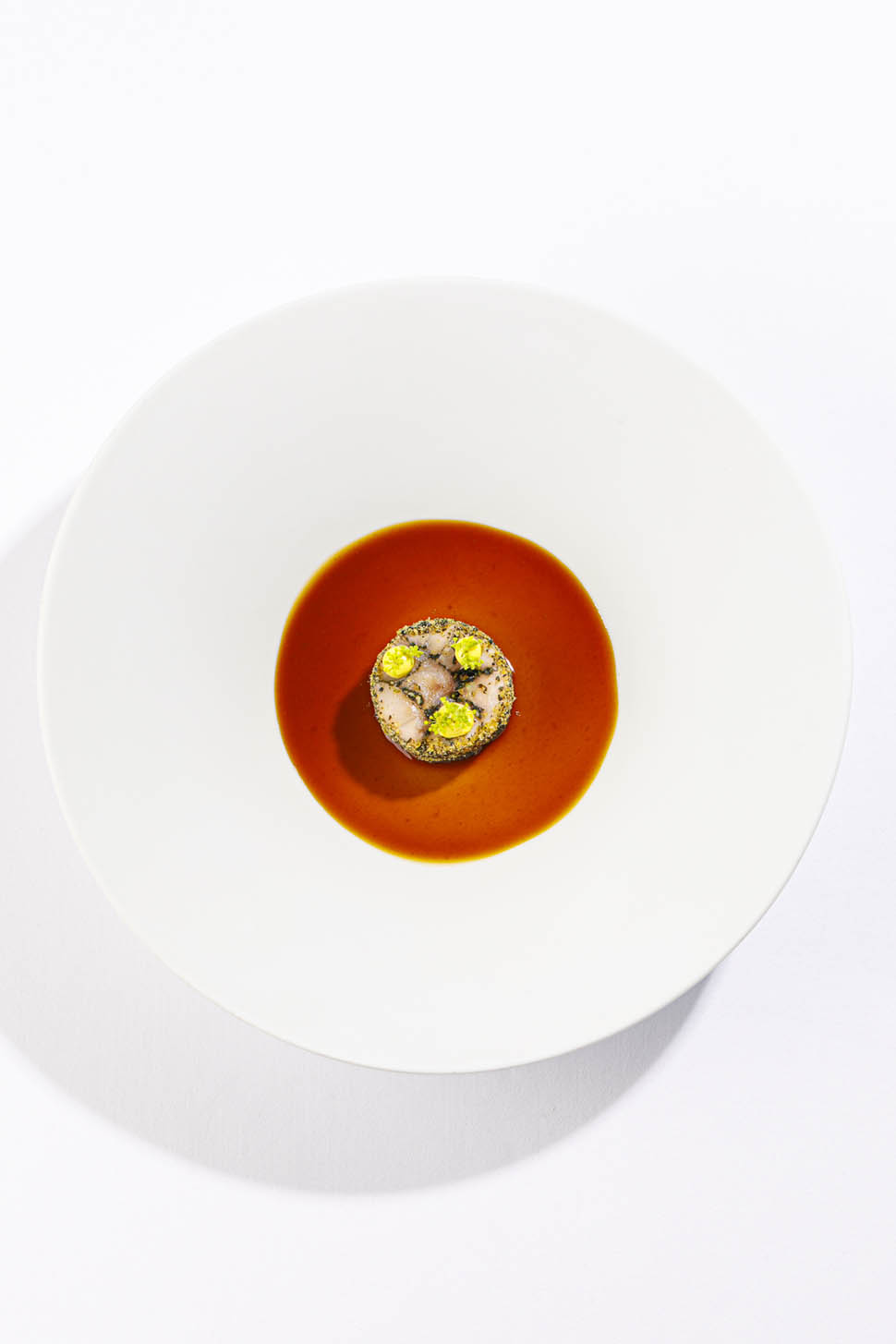
The succulent Beef, apricots and mustard is excellent: the meat is a top sirloin from the Benevento breed with just over a month of maturation. It is barbecued and lacquered, then served with apricot and spicy mustard sauce, a gel of the same unripe fruit, and marinated mustard seeds; next to it is a fresh pickle-marinated apricot, and to close a brown bottom with infused mustard seeds. At the end of the savory course, it would be worthwhile to be tempted by a large (in every sense of the word) cheese trolley, before being seduced by Luca Villa's skill in crafting desserts of high rank and incredible levity.
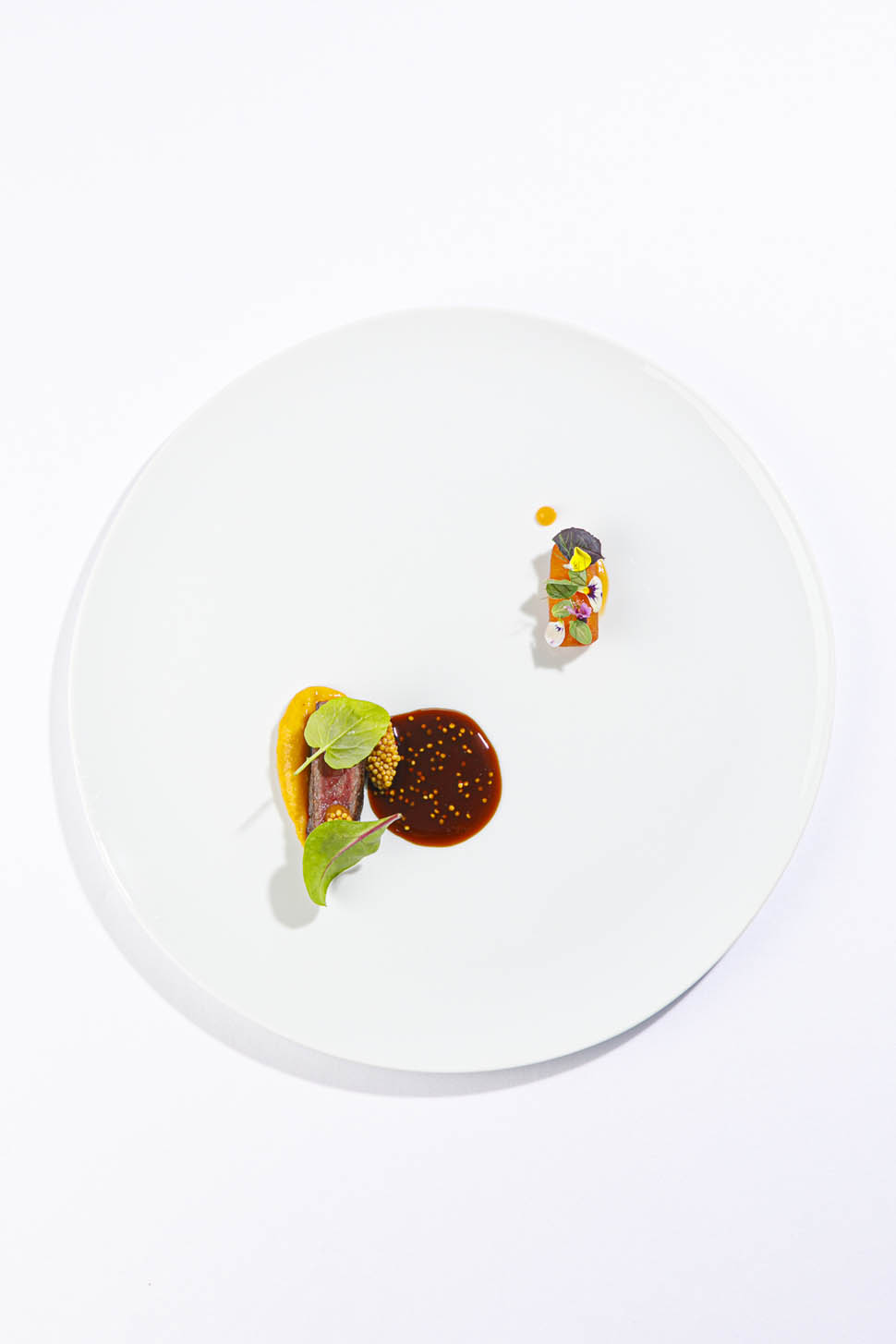
'Flowers and Blossoms' is a soft rice dacquoise, bathed in elderflower syrup and orange blossom. Next comes a floral granita made with jasmine rice water and rice distillate. Again, mock sugar flower puffed with jasmine tea froth and cocoa pulp and a quenelle with the same elements. To finish, a jelly of elderberry vinegar and fresh white flowers.
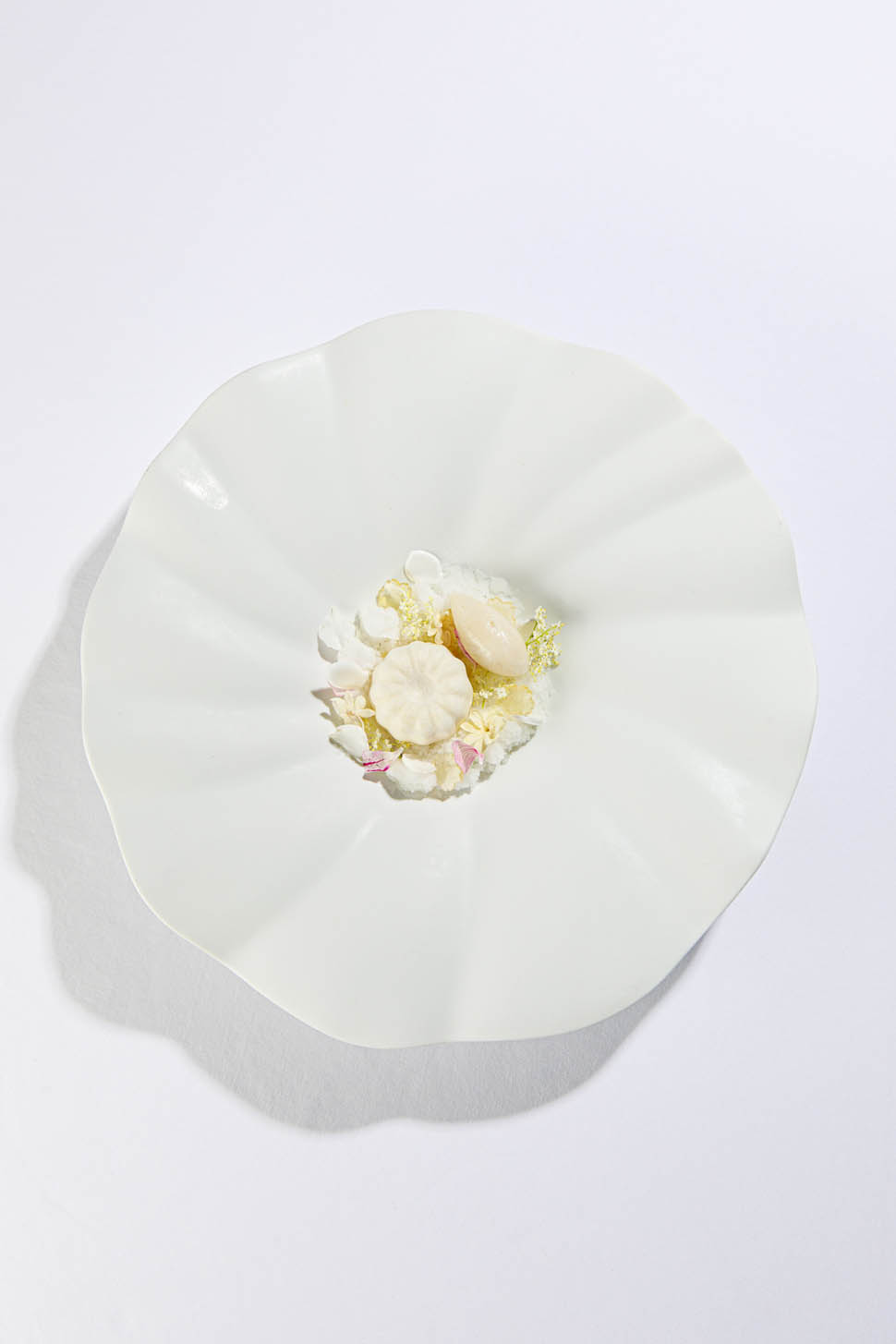
It is not easy to close a course like the one Antonini proposed, but the last dessert is an absolute masterpiece, probably the dessert of the year, for us: Almond, watermelon and Taggiasche olives. Of seductive complexity and layers of goodness, with soft almond cookie, Taggiasca olive pate, caper leaves and toasted almond creamy; again, brioche waffles with olive caramel and fresh watermelon pearls; watermelon aspic, waffle and bitter almond ice cream.
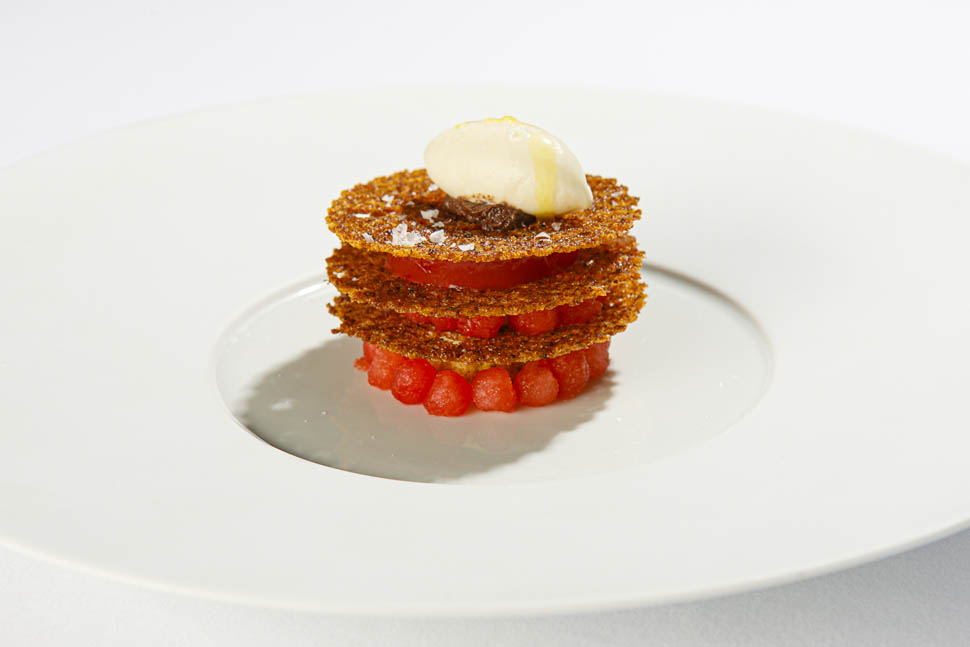
Definitely deserving of a mention is the wine list, equal to the overall offering and passionately articulated by head sommelier Alessio Bricoli. Confirming this, the wine cellar of Imàgo (and the Hotel Hassler) was the designated Regional Winner in Europe for “The World's Best Wine Lists 2024” award by The World of Fine Wine, a prestigious British publication, and will compete in London with five other participants for victory in the Global Category Awards. For one of the most comprehensive fine dining experiences in Italy.
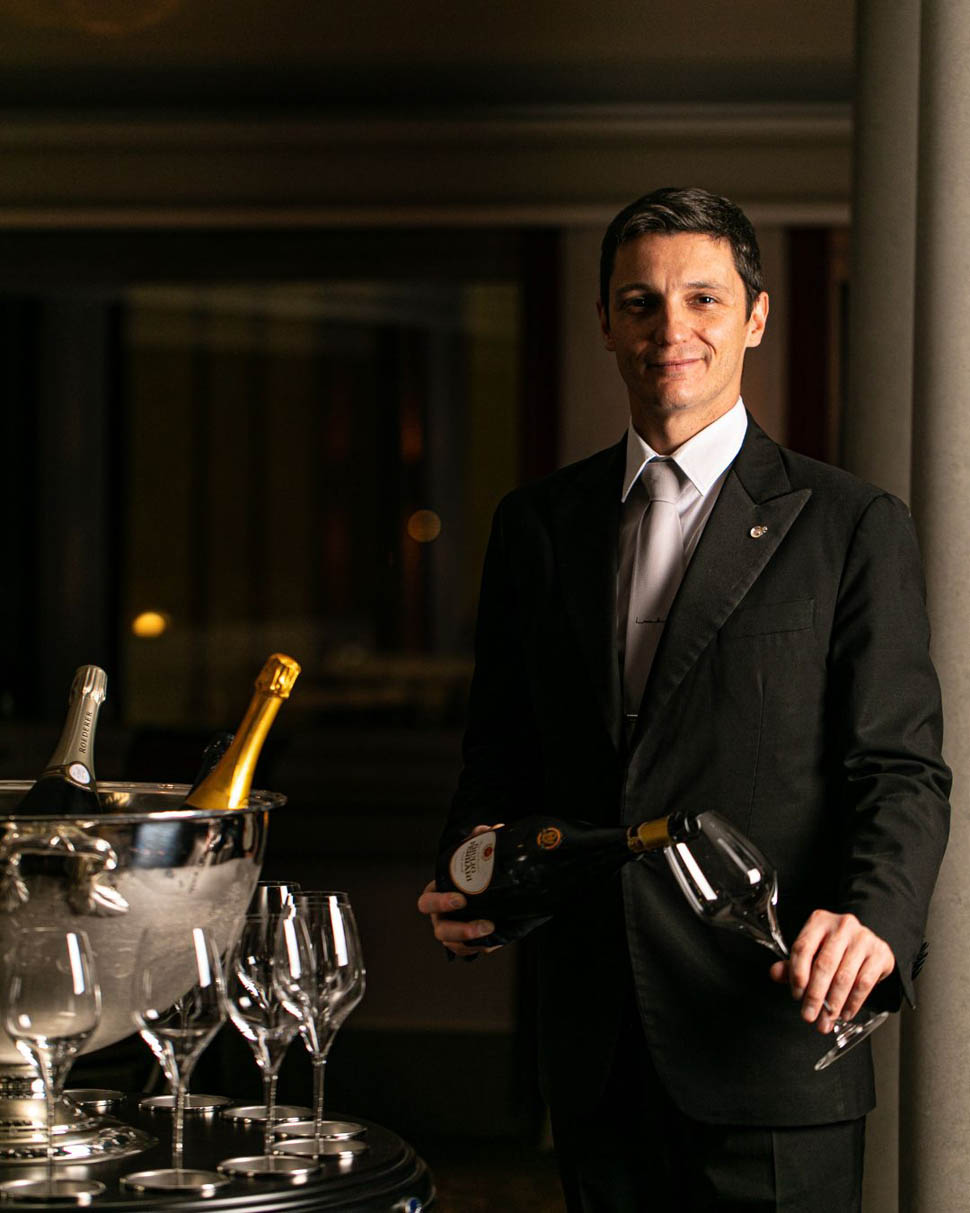
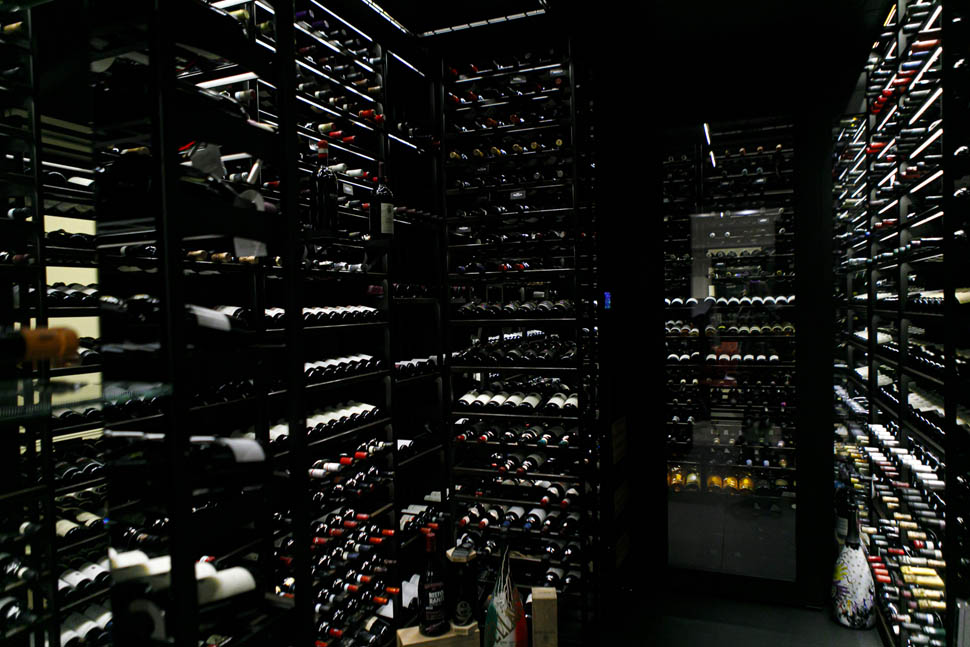
Contact
Imàgo at Hassler
Piazza della Trinità dei Monti, 6, 00187 Rome RM
Phone: 06 6993 4726
